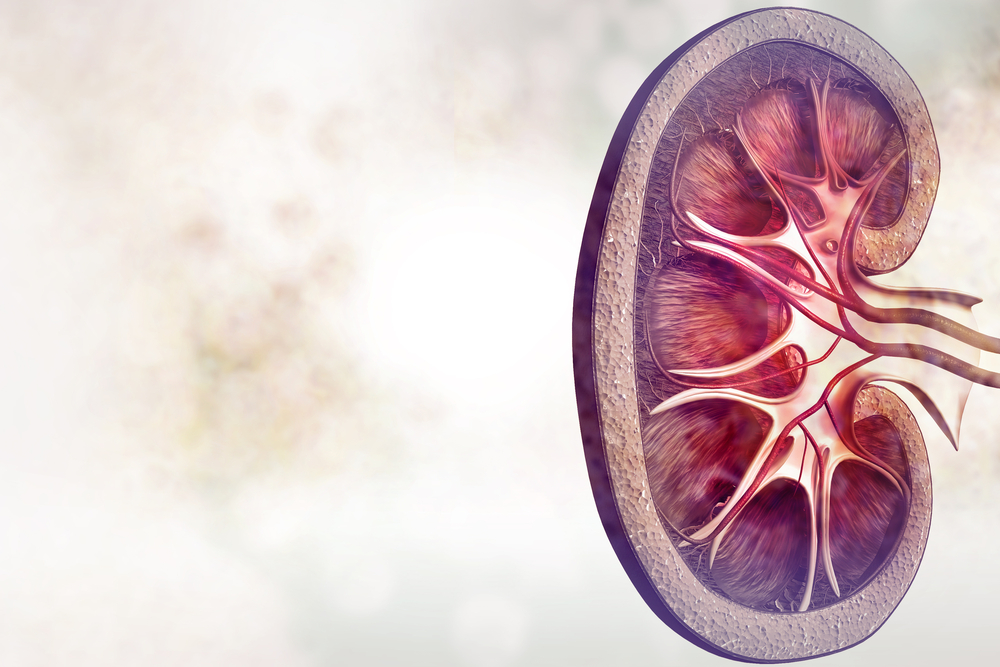Specific Immune System Regulators Predict Clinical Severity in Kidneys of ANCA Vasculitis Patients, Study Finds
Written by |

Lower levels of key immune system regulators in the kidneys of ANCA vasculitis patients may indicate more severe renal injury, according to a new study from China.
The study, “Complement regulatory proteins in kidneys of patients with anti-neutrophil cytoplasmic antibody (ANCA)-associated vasculitis,” appeared in the journal Clinical & Experimental Immunology.
Data from animal and human studies has shown that activating the complement system (a part of the immune system that is induced by pathogens and antibodies) plays a key role in the disease development of anti-neutrophil cytoplasmic antibody (ANCA)-associated vasculitis (AAV).
Complement activation products (CAPs) have been found in the tiny filters of the kidney, called glomeruli, in AAV patients. Glomeruli remove excess fluid, electrolytes, and waste from the blood into the urine.
However, researchers did not find a correlation between CAP levels in the kidney and levels of corresponding products in blood circulation, suggesting that complement system activation may occur directly in the kidney, and induce kidney damage.
Complement activation is tightly controlled by complement regulatory proteins (CRPs). Altered levels of CRPs located at the cell membrane (mCRPs) may affect complement activation in kidneys of patients with nephritis (inflammation of the kidneys).
The role of complement regulatory proteins CD46, CD55, and CD59 has been demonstrated in various autoimmune diseases, including systemic lupus erythematosus (SLE), rheumatoid arthritis, and immune complex-mediated glomerulonephritis.
However, no studies have yet addressed the production of mCRPs in the kidneys of AAV patients.
The researchers aimed to determine the production of CD46, CD55, and CD59 in the kidneys of 51 patients with AVV and its relationship to renal clinical severity.
The study’s senior author was Ping Fu, an MD and PhD, from the Division of Nephrology, Kidney Research Institute, West China Hospital of Sichuan University, in Chengdu, China.
Results revealed that all three CRPs could be detected in the kidneys’ glomeruli and tubules of both AAV patients and healthy controls. CD46, CD55, and CD59 were observed in endothelial cells, podocytes, and mesangial cells, which are different glomerular cell types.
But the levels of the three CRPs were significantly lower in the glomeruli of AAV patients than in controls. Similar differences were found in respect to CD46 and CD55 in the tubules, but not CD59, when comparing AAV patients with controls. These lower CRP levels may lead to an increase in renal CAPs, and result in the activation of the immune response.
In AAV patients, the levels of CD46 in the kidneys were also proportional to the amount of defective tubules and the number of injured glomeruli.
Also, higher glomerular levels of CD55 and CD59 were associated with increased proliferative, damaging structures in the glomeruli, called crescents, which are observed in glomerulonephritis (inflammation of the glomeruli).
This suggests that once the complement system is activated, a protective response occurs, increasing mCRP levels to counteract this over-activation. Therefore, mCRP levels could function as indicators of the extent of kidney injury in AAV.
“In summary, the expression levels of CD46, CD55 and CD59 were dysregulated in kidneys of patients with AAV,” researchers wrote. “The expression levels of CD46, CD55 and CD59 were associated with the severity of renal injury of AAV patients.”





